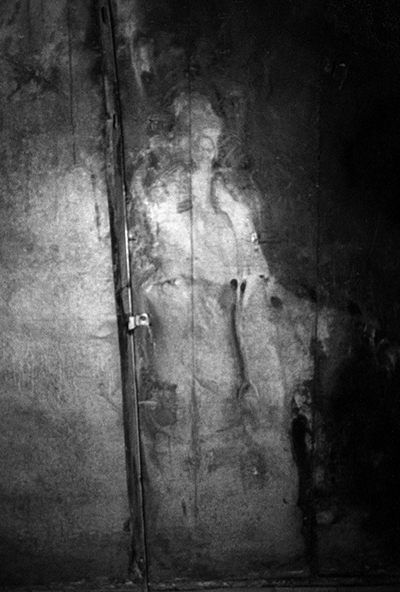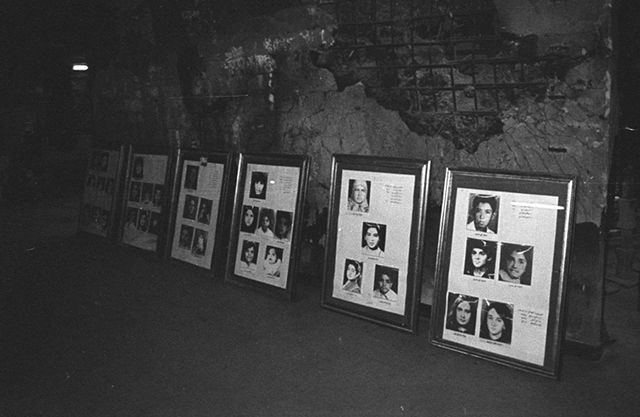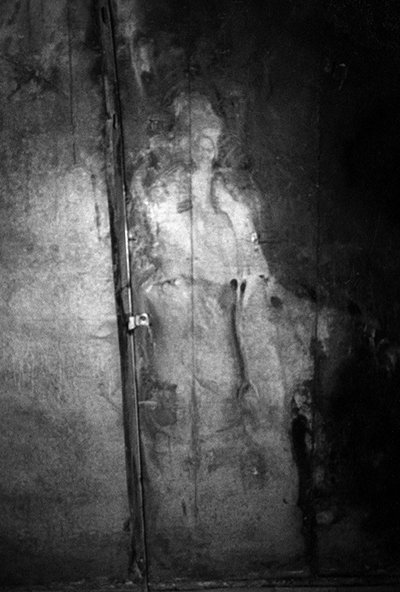Soon after the bombing of a Médecins Sans Frontières (MSF) hospital in Kunduz, Afghanistan, on October 3, an MSF medic was interviewed, saying he and his colleagues had repeatedly alerted the Pentagon of the facility’s precise location before the attack and had also contacted the Pentagon during the attack to urge the United States to stop dropping bombs on the hospital.
I knew immediately that this was yet another case of US military hubris. It brought up graphic memories of the results of a prior US military assault on a humanitarian refuge.
I think it’s safe to say that most US residents assume the military that operates thanks to their tax dollars has a permanent, blanket order to not bomb hospitals, schools, clinics, places of worship, community centers, neighborhoods and other civilian structures. Like bomb shelters.
MSF is an internationally acclaimed – and widely beloved – organization that was honored with a Nobel Peace Prize (yes, the Nobel was also awarded to Henry Kissinger, Barack Obama and the European Union, among other unworthy recipients, but in the case of MSF, no rational person could argue it was undeserved). That alone should have ensured that calls from MSF would yield a top-level order to US bombers to steer wide of the hospital, even if a suspected terrorist or two was being treated or even, unwounded, had sought refuge there.
And if there had been a “mistake” at first, the urgent calls should have brought an immediate halt to any further bombing until the situation was clarified.
But none of this happened.
Christopher Stokes, MSF’s general director, described the course of events in this way: “The US government has admitted that it was their airstrike that hit our hospital in Kunduz and killed 22 patients and MSF staff. Their description of the attack keeps changing – from collateral damage, to a tragic incident, to now attempting to pass responsibility to the Afghanistan government.”
I am sad to say that I’m not surprised.
Attacks on Civilians, From Afghanistan to Iraq
One of the most chilling experiences I’ve ever had was visiting the site of the Amariyah air raid shelter in Baghdad, Iraq – now a memorial – just a few weeks before the 2003 US invasion of that country. My husband, George Sapio, and I were catching up on a lot of history, learning about how US bombs in 1991 and throughout the Clinton years, in combination with US-imposed sanctions, had devastated Iraqi society.
What happened at Amariyah was horrific. This is what I wrote then, in a piece for Salon:
We went to the site of the Amiriya [sic] bomb shelter, where at 4:30 on the morning of Feb. 13, 1991, more than 400 people, mostly women and children, were vaporized by a U.S. “smart bomb” as they slept in this “safe place” where they’d sought refuge. The bomb caused the temperature in the shelter to rise to 900 degrees Fahrenheit in moments; the bodies were incinerated, the remains blasted into the concrete floor. We stared at the outlines of the children sleeping curled up or stretched out, some of them hugging a sister or brother or mother. One woman was standing, breast-feeding her baby, when the bombs hit. Her image is burned into the concrete wall, her mouth frozen in a scream.
 A young woman and her breastfeeding baby, caught for all eternity on the wall of the Amariyah Bomb Shelter, where they were incinerated. (Photo: George Sapio)That gruesome, heartbreaking image has stayed with me all these years, and it has been rising, unbeckoned, in my mind’s eye since I learned of the Kunduz attack.
A young woman and her breastfeeding baby, caught for all eternity on the wall of the Amariyah Bomb Shelter, where they were incinerated. (Photo: George Sapio)That gruesome, heartbreaking image has stayed with me all these years, and it has been rising, unbeckoned, in my mind’s eye since I learned of the Kunduz attack.
My heart remains heavy for the people of Iraq, who still have no infrastructure. (In most of the country, electricity is two hours on, two hours off, at its best, even when summer temperatures soar to the 110s Fahrenheit and higher, and winter temperatures sink into the 50s and 40s.) And for the people of Afghanistan, and Syria, and all the places where terror – much of it fomented by my own government – is the way of life for all civilians, whether they remain in their ancestral homes or have been forced into displacement in their own or strange lands.
I bow in respect and gratitude to the courageous and compassionate individuals who work with MSF and other humanitarian and human rights organizations in places where violence can come from any direction, including from one’s own government.
No More Violence in Our Name
But it doesn’t have to be this way. The United States was founded on lofty principles – admittedly by flawed men of privilege, but with many noble intentions. It was not established to be the scourge of the globe, although that is what it has become.
Attacks on civilians – like the ongoing drone attacks on the people of Pakistan, Yemen and Somalia about which we hear next to nothing in mainstream media – are being perpetrated in our name, with our tax dollars and often with our blood, sweat and tears. Thus the buck has to stop with us. Let’s hold US officials’ feet to the fire.
We must find ways to stop this senseless destructiveness, both abroad and at home, where mass murder of innocents has become so commonplace we forget each incident within days after it occurs. Until we start holding our leaders accountable for these atrocities – these crimes – we will continue to slide into lawlessness on every front, at home and abroad.
 Some of the 408 civilians killed in the bomb “shelter” at Amariyah, now a memorial. (Photo: George Sapio)
Some of the 408 civilians killed in the bomb “shelter” at Amariyah, now a memorial. (Photo: George Sapio)
For starters, we must demand an independent investigation (MSF has a campaign you can join, here) of the attacks on the Kunduz hospital and demand serious consequences for those found guilty of perpetrating them. The consequences must be applied not only to the soldiers and air raiders who were following orders, but also to their bosses, and their bosses’ bosses, and their bosses’ bosses’ bosses. Tweet, email and share out the demand for an independent investigation.
Find your US House of Representatives member and your US senators here. Then, please send all three of them a message. It can be as simple as this:
I’m your constituent. I want you to sponsor or cosponsor a bill to begin a swift, thorough, and thoroughly independent investigation of the Kunduz hospital bombings. This is a critically important issue to me.
Join World Beyond War, Voices for Creative Nonviolence and/or other peace-building organizations and get involved in the long-term struggle to bring sense to US foreign policy. Push for the United States to give asylum to 50,000 Syrians who have fled the violence in their country.
You might also want to join – or start – a group working to end violence in the United States, or in your own community. It all does begin at home.
We’re lucky enough to still have a home country that’s relatively safe. But it’s naive to believe it will stay that way indefinitely if our government continues to attack innocents abroad.
Join us in defending the truth before it’s too late
The future of independent journalism is uncertain, and the consequences of losing it are too grave to ignore. To ensure Truthout remains safe, strong, and free, we need to raise $43,000 in the next 6 days. Every dollar raised goes directly toward the costs of producing news you can trust.
Please give what you can — because by supporting us with a tax-deductible donation, you’re not just preserving a source of news, you’re helping to safeguard what’s left of our democracy.
